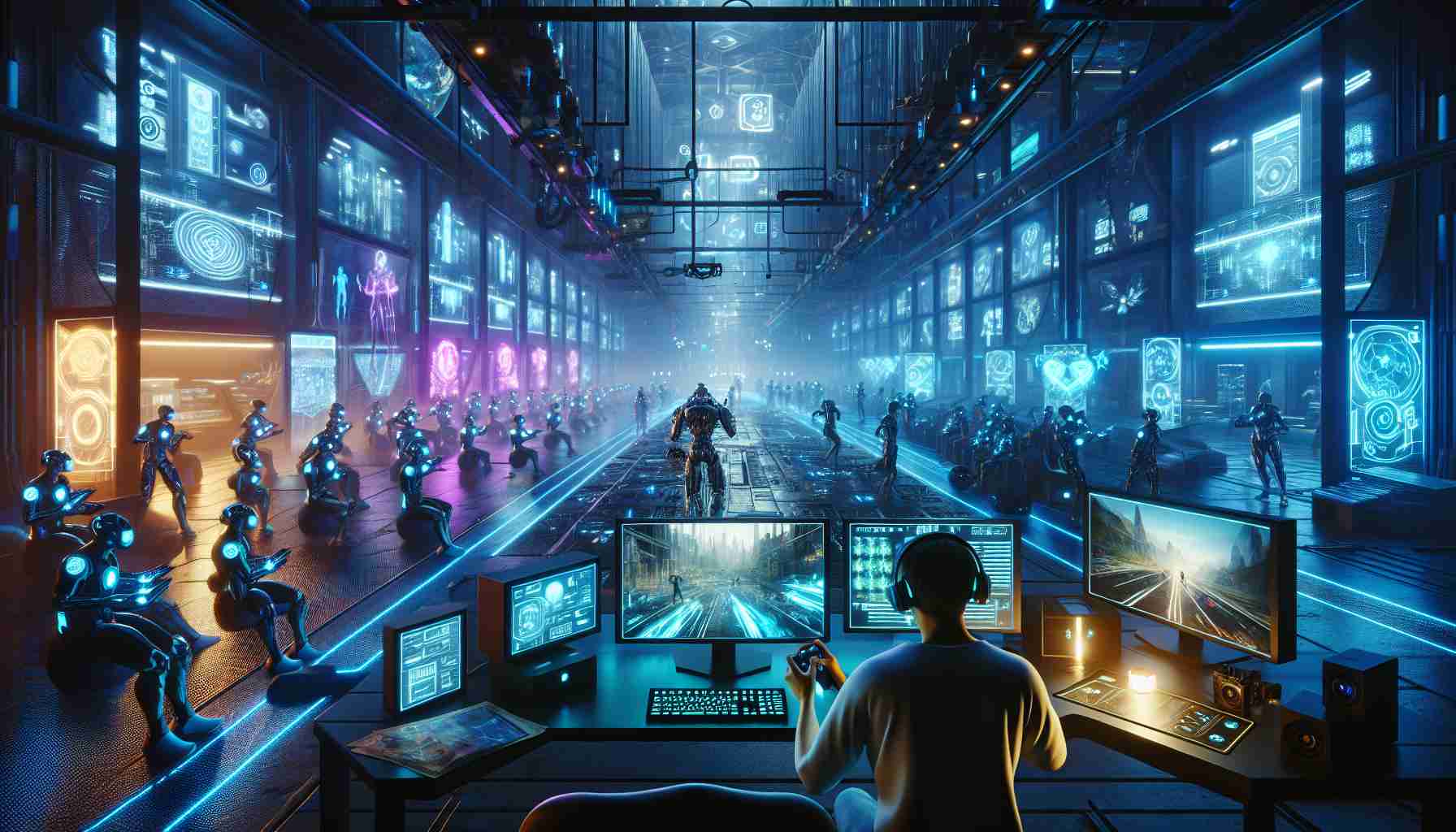Imagine a future where gaming surpasses the constraints of reality. Welcome to the year 2330, where technology unlocks unprecedented dimensions in the gaming universe. As we peer into this distant future, let’s delve into the innovations that promise to reshape the world of gaming.
Advanced Neural Interfaces: By 2330, gaming could be entirely controlled via advanced neural interfaces. Gone are the days of controllers and keyboards. Players engage on a mental level, where thought translates instantly into action within the game. This offers a seamless, immersive experience like never before.
Ultra-Realistic Virtual Environments: Equipped with cutting-edge AI and holographic technology, games offer environments indistinguishable from reality. Players explore worlds conjured with an eye for finer details, be it the rustling of leaves or changing weather patterns, completely enveloping the senses.
Personalized Game Narratives: Utilizing powerful AI, games learn and adapt to players’ choices and styles. Individual narratives unfold uniquely for each gamer, offering limitless possibilities and ensuring every storyline is unrepeatable.
Interplanetary Gaming Competitions: With humanity potentially possessing the technology for interplanetary travel, competitive gaming might host events on different celestial bodies. This cosmic arena would redefine esports on an astronomical scale.
As we embark on the journey toward 2330, the future promises a gaming experience indistinguishable from reality, driven by technological leaps and boundless creativity. Stay tuned, for the next millennium is set to redefine the very essence of gaming.
Beyond the Screen: How Gaming Might Influence Societies in 2330
As we look ahead to the year 2330, the gaming landscape promises more than just technological leaps; it portends profound societal impacts. While advanced neural interfaces and ultra-realistic virtual environments offer unparalleled gaming experiences, they also raise significant questions about their influence on diverse aspects of life.
Impact on Social Structures: As games become more immersive, they may alter how individuals interact within societies. The traditional concept of social gatherings could evolve, with people choosing virtual meet-ups over physical ones, causing a shift in how communities bond. While this fosters global connectivity, it may also erode local cultural identities.
Mental Health and Cognitive Skills: The dependence on gaming for mental escapism could affect cognitive skills and mental health. People might find the virtual world more appealing than reality, potentially impacting social skills and real-world problem-solving abilities. Conversely, such environments could serve as valuable platforms for cognitive training and mental health therapies.
Economic Implications: The gaming industry’s transformation could lead to a host of new job opportunities, ranging from virtual estate developers to neurology specialists for neural interfaces. The economic landscape might pivot to favor digital economies, demanding shifts in education and workforce training systems.
Ethical Considerations: The possibility of gaming altering personal identities raises ethical questions. How much of our humanity are we willing to trade for enhanced virtual experiences? Balancing innovation with ethical constraints will remain a critical concern.
While these advances offer numerous benefits, they challenge existing norms. Are we on the brink of a utopian evolution or a dystopian dependency? Time will tell as societies adapt to these impending changes.
For more information on gaming advancements and their societal impacts, visit GamesIndustry.biz or TechCrunch.



















